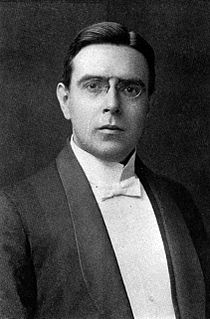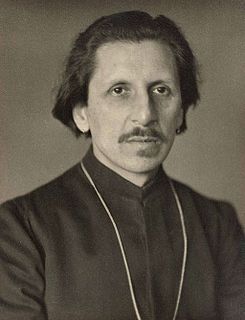A Quote by Albert Camus
There is a metaphysical honour in ending the world's absurdity. Conquest or play-acting, multiple loves, absurd revolt are tributes that man pays to his dignity in a campaign in which he is defeated in advance.... War cannot be negated. One must live it or die of it. So it is with the absurd: it is a question of breathing with it, of recognizing its lessons and recovering their flesh. In this regard the absurd joy par excellence is creation. "Art and nothing but art", said Nietzsche, "we have art in order not to die of the truth."
Quote Topics
Related Quotes
We live in a time which has created the art of the absurd. It is our art. It contains happenings, Pop art, camp, a theater of the absurd... Do we have the art because the absurd is the patina of waste...? Or are we face to face with a desperate or most rational effort from the deepest resources of the unconscious of us all to rescue civilization from the pit and plague of its bedding?
Do you realize that people don't know how to read Kafka simply because they want to decipher him? Instead of letting themselves be carried away by his unequaled imagination, they look for allegories - and come up with nothing but clichés: life is absurd (or it is not absurd), God is beyond reach (or within reach), etc. You can understand nothing about art, particularly modern art, if you do not understand that imagination is a value in itself.
Abraham Maslow said that the fully realized person transcends his local group and identifies with the species. But the election of Ronald Reagan might've been the beginning of my giving up on my species. Because it was absurd. To this day it remains absurd. More than absurd, it was frightening: it represented the rise to supremacy of darkness, the ascendancy of ignorance.
The deepest poverty is the inability of joy, the tediousness of a life considered absurd and contradictory. This poverty is widespread today, in very different forms in the materially rich as well as the poor countries. The inability of joy presupposes and produces the inability to love, produces jealousy, avarice - all defects that devastate the life of individuals and of the world. This is why we are in need of a new evangelization - if the art of living remains an unknown, nothing else works... this art can only be communicated by [one] who has life - he who is the Gospel personified.
Happiness and the absurd are two sons of the same earth. They are inseparable. It would be a mistake to say that happiness necessarily springs from the absurd discovery. It happens as well that the felling of the absurd springs from happiness. "I conclude that all is well," says Oedipus, and that remark is sacred. It echoes in the wild and limited universe of man. It teaches that all is not, has not been, exhausted. It drives out of this world a god who had come into it with dissatisfaction and a preference for futile suffering. It makes of fate a human matter, which must be settled among men.
It is a truism that as long as man loves but himself and his art he can never attain to the full measure of manhood or reach the sublimest heights of his art. He must seek to love men as brothers and art, not for the sake of art itself, but art as a means toward bringing all men up to that verdant plateau where their souls may be fed in very rejoicing in all that is true, beautiful, and abiding.








































